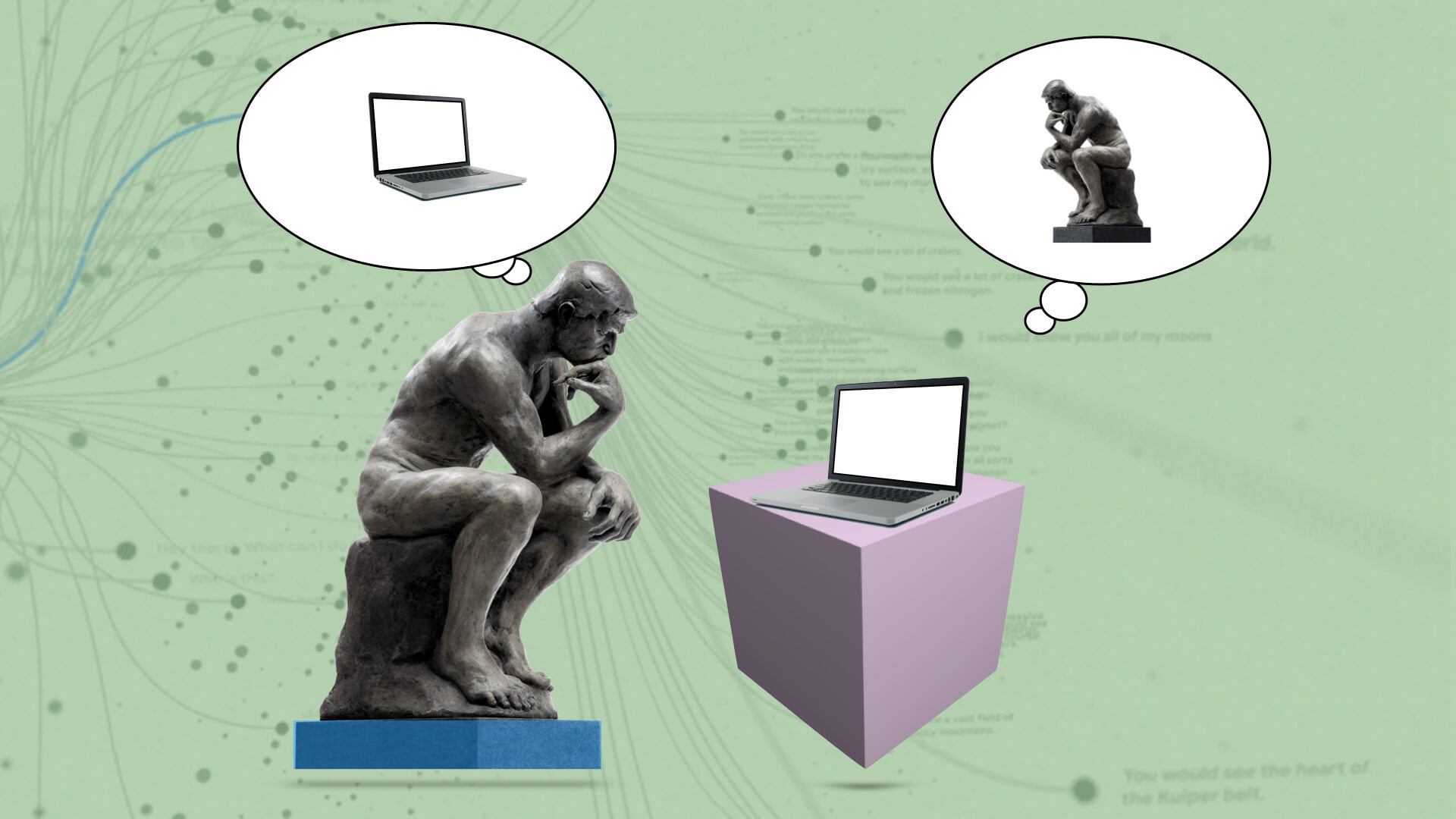Research: Gen AI
A (relatively) succinct take
on GenAI in Education
Since ChatGPT3 erupted into our lives, I have been playing, thinking, and writing about what it means for us as educators. There are just so many dimensions and it is difficult to capture all of what I have been involved in a succinct manner. But maybe this keynote I recently gave at a conference at the University of Michigan Flint captures some of the key ideas I have been struggling with. More at Generative AI in Education: Keynote at UofM Flint.
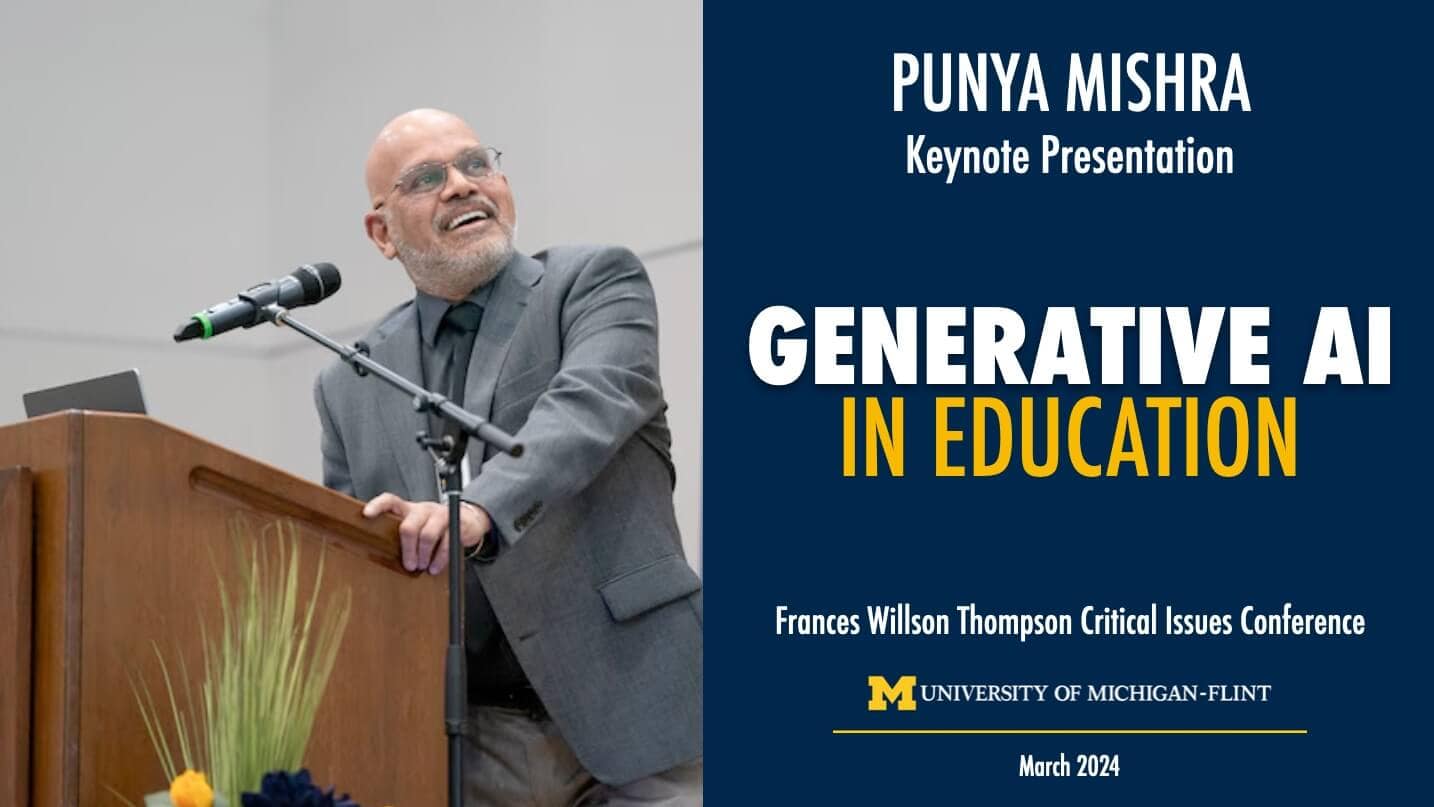
All my writing on GenAI
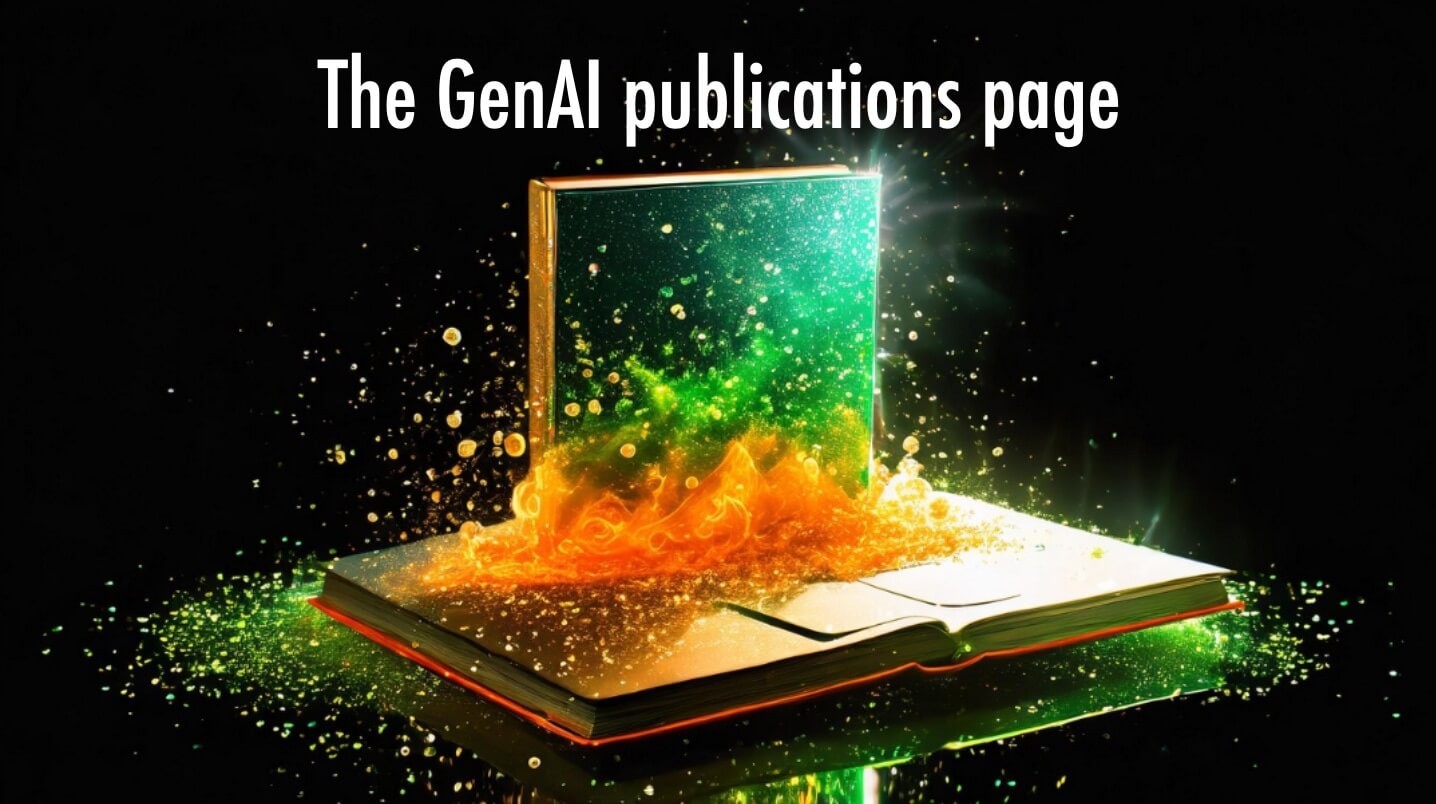
Over the past year and a half I have been writing quite extensively about generative AI and what this new technology means for us, as educators, learners and people in the world. To make it easy to find here are two key links:
- All my academic publications related to GenAI
- All my Blog Posts related to genAI
Gen AI is WEIRD
(and an aid to creativity)
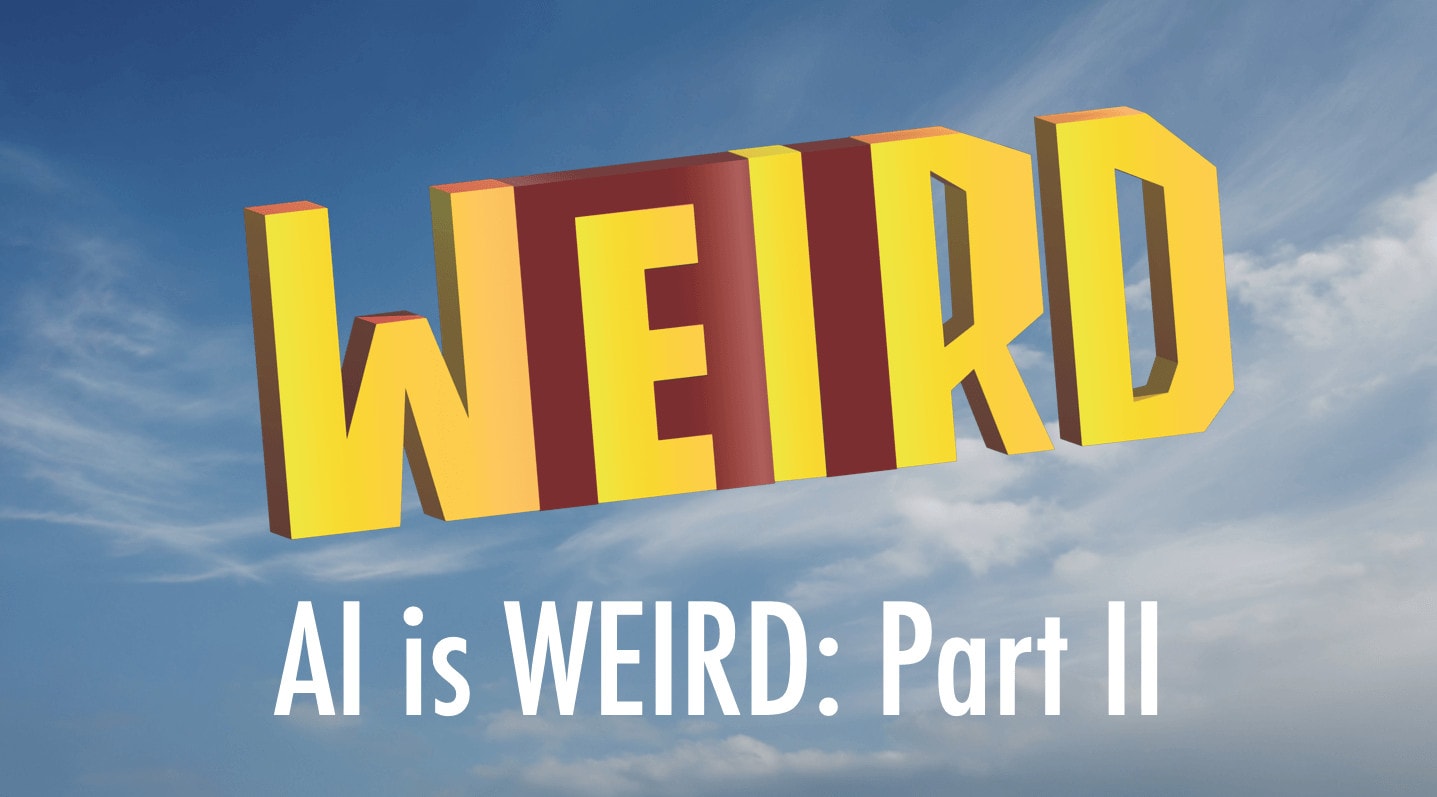
These large language models (LLMs) are weird along multiple dimensions, some of which I explore in these two blog posts (GenAI is weird I and II).
At the same time this “weirdness” is what gives Gen AI some its critical powers to help us become more creative, for instance in helping me write this Halloween story (Vikram or Vetaal). I do believe that these tools can be used creatively by educators and learners to enhance the educational process. These tools have given me super-powers that I did not have a few months ago, or even a few days ago! But what that will need an openness to experiment and play, to keep the technology in mind, even while we think of new ways of representing and engaging with content, and through that connecting with our learners, in specific contexts of use. More here…
Psychology of media:
Precursors to the current work
My current work on AI has been informed by some work I did almost two decades ago on the psychological aspects of working with interactive media. Building on Computers As Social Actors Hypothesis this line of work explores how people often respond to interactive media just as they respond to real people. For instance, research has shown that people are polite to computers, treat them as teammates, stereotype them, and feel flattered by them. Back in the late 1990’s and early 2000’s I was involved in a extensive research program that systematically explored the educational and design implications of this attribution of agency to interactive media.
This work drew upon evidence from cognitive science, developmental psychology, and evolutionary psychology to argue that this intentional stance is a “cognitive illusion,” that is the product of highly sophisticated, deeply entrenched inferential principles that are quite inaccessible to conscious introspection or voluntary control. This led to a range of articles and posts here are some key ones
- Mishra, P., Nicholson, M., & Wojcikiewicz, S. (2001/2003). Does my wordprocessor have a personality? Topffer’s Law and Educational Technology. Journal of Adolescent and Adult Literacy. 44 (7), 634-641.
-
Mishra, P. (2006). Affective Feedback from Computers and its Effect on Perceived Ability and Affect. Journal of Educational Multimedia and Hypermedia. 15 (1), pp. 107-131.
-
Can a computer program be sentient? Insights from Topffer (blog post)
GenAI and ethics
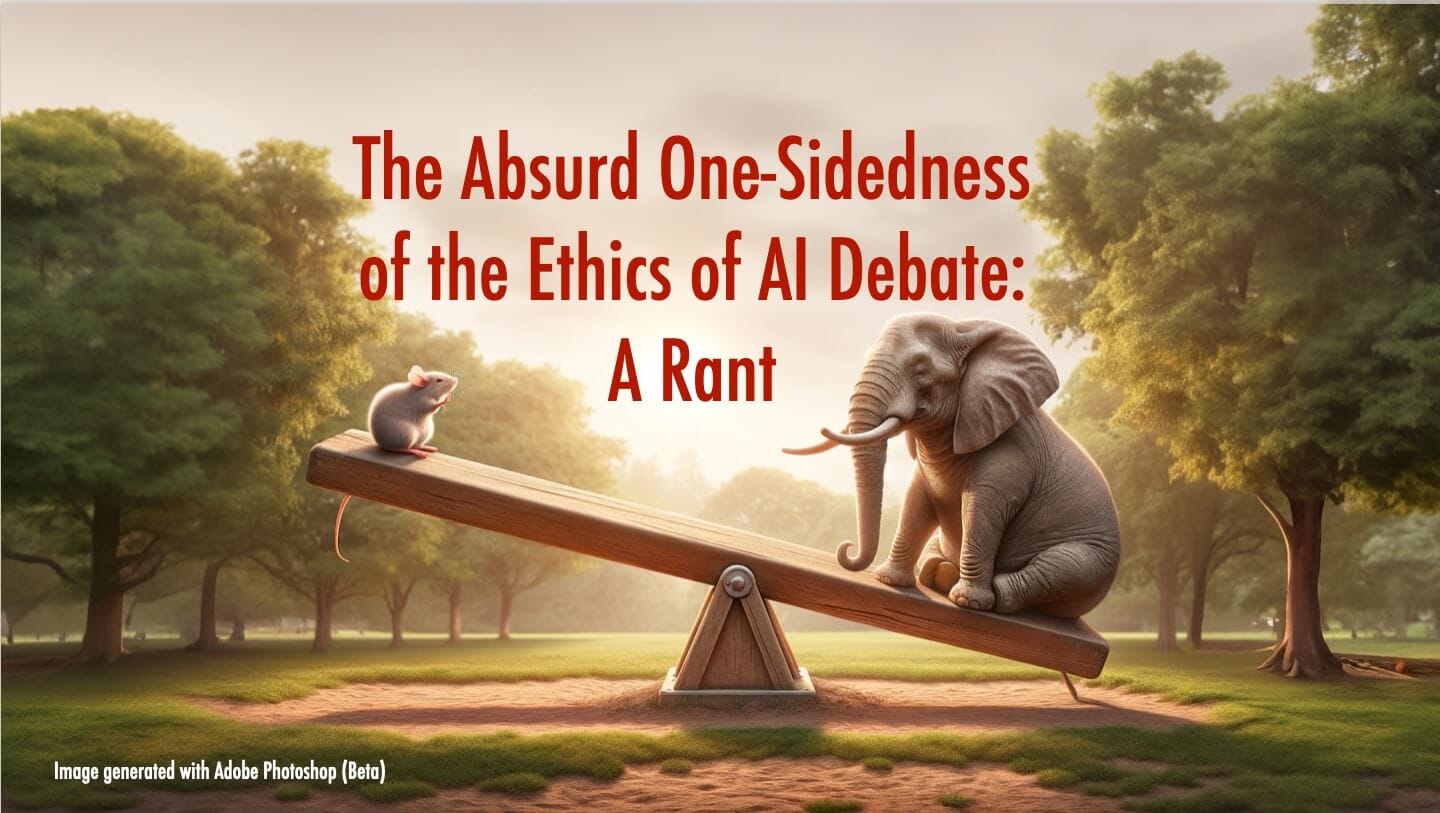
No conversation about AI and education is complete without discussing the importance of the ethical uses of the technology. I have, as most educators, been thinking about these issues and have written about them in this blog and in other academic outlets. Here are a few.
- The absurd one-sidedness of the ethics of AI debate
- GenAI: Will history repeat or (just) rhyme
- Close, K., Warr, M., & Mishra, P. (2023). The Ethical Consequences, Contestations, and Possibilities of Designs in Educational Systems. TechTrends. https://doi.org/10.1007/s11528-023-00900-7
- Implict bias in AI systems
- How to identify AI generated text
The true nature of GenAI
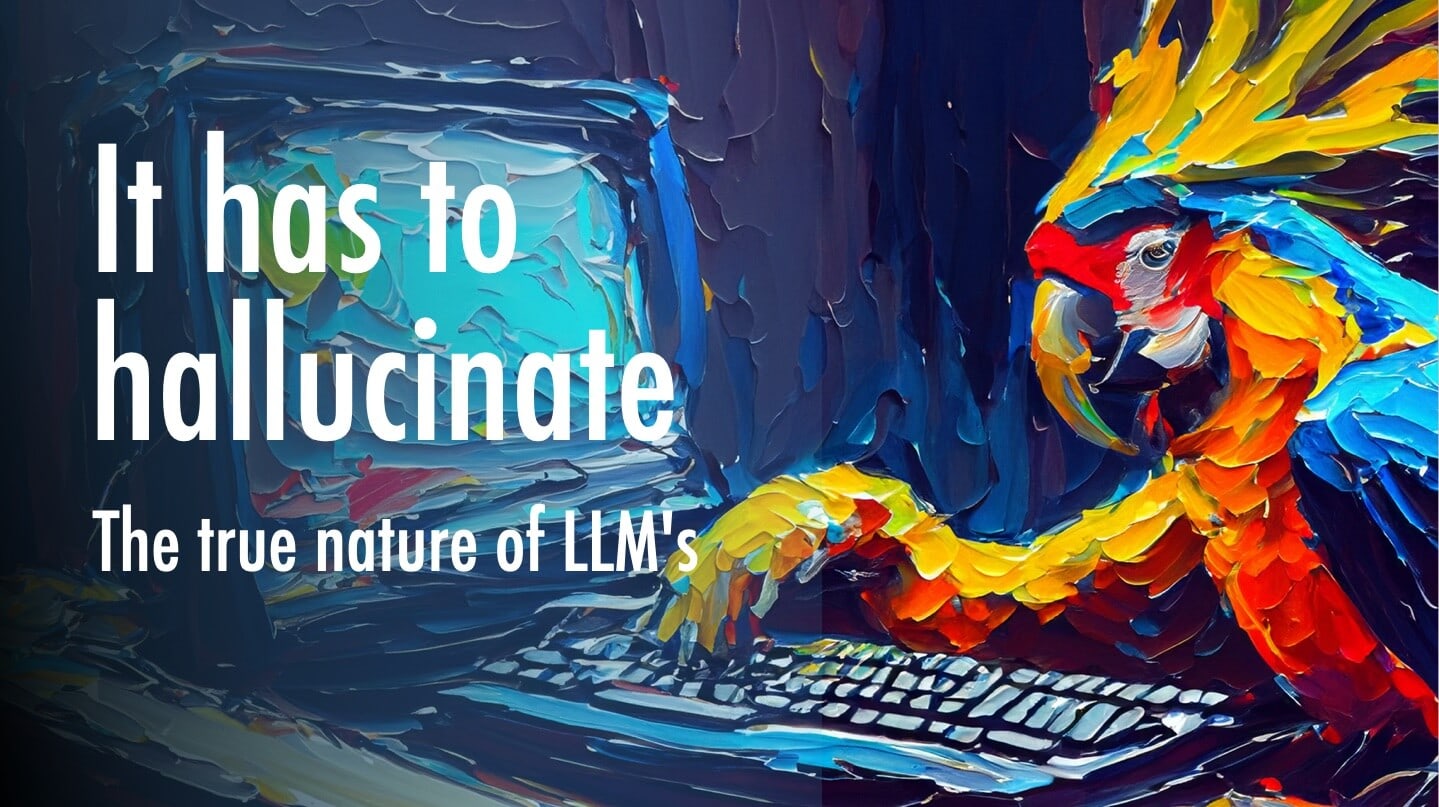 The most important insight concerning GenAI is philosophical in nature. These technologies require a shift in perspective from a mere utilitarian technological approach to a relational one. Traditional dichotomies—machine versus tool, tool versus object—blur and lose their relevance when we speak of GenAI. GenAI doesn’t just operate in isolation, but it interacts, learns, and grows through dialogue with humans. This collaborative dance of information exchange collapses the old boundaries that once defined our relationship with tools and technology. The meaning of these entities is not fixed or predetermined, rather, how we make sense of these new tools is emergent based on multiple rounds of dialogue and interactions with them, akin to how we engage, interact and learn from and with human correspondents. Thus, we’re not just users or operators, we’re co-creators, shaping and being shaped by these technologies in a continuous and dynamic process of co-constitution.
The most important insight concerning GenAI is philosophical in nature. These technologies require a shift in perspective from a mere utilitarian technological approach to a relational one. Traditional dichotomies—machine versus tool, tool versus object—blur and lose their relevance when we speak of GenAI. GenAI doesn’t just operate in isolation, but it interacts, learns, and grows through dialogue with humans. This collaborative dance of information exchange collapses the old boundaries that once defined our relationship with tools and technology. The meaning of these entities is not fixed or predetermined, rather, how we make sense of these new tools is emergent based on multiple rounds of dialogue and interactions with them, akin to how we engage, interact and learn from and with human correspondents. Thus, we’re not just users or operators, we’re co-creators, shaping and being shaped by these technologies in a continuous and dynamic process of co-constitution.
Teacher Knowledge (TPACK) in
an age of Gen AI
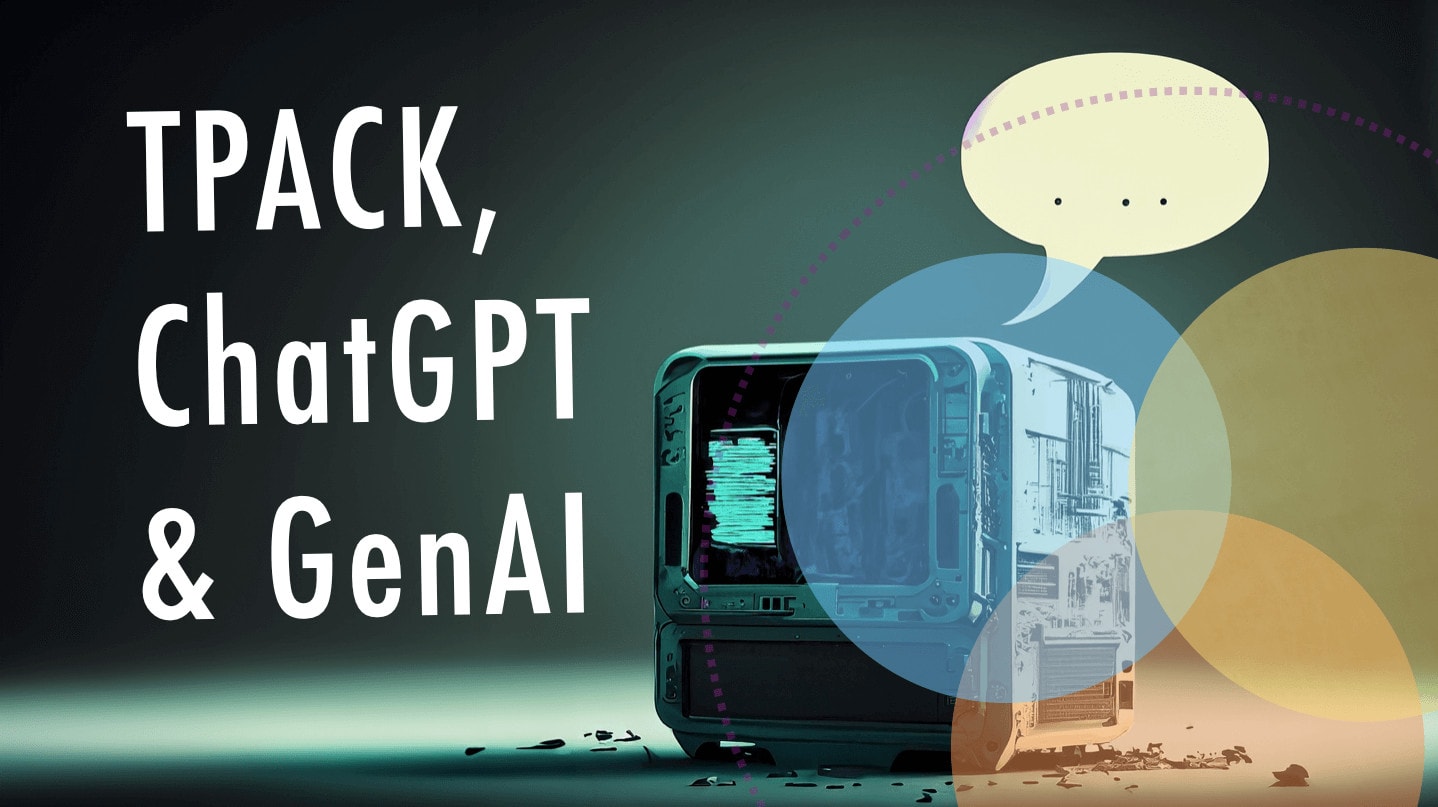
The rise of Generative AI (and tools such as ChatGPT) and their potential impact on education have been discussed and debated ad-nauseam. The key question, as teacher educators, is what it is that teachers need to know to intelligently integrate these technologies in their practice? We explore this and more in:
Mishra, P, Warr, M, & Islam, R. (2023): TPACK in the age of ChatGPT and Generative AI. Journal of Digital Learning in Teacher Education, DOI: 10.1080/21532974.2023.2247480
This paper, which received the JDLTE Outstanding Research Paper Award, brings together some early work on people’s psychological responses to media, my work on the TPACK framework, and our evolving understanding of these new technologies. An executive summary is available in 5 different languages: English, Arabic, Spanish, Mandarin, Portuguese and Turkish.
Also relevant:
Mishra, P., Oster, N., & Henriksen, D. (2-24). Generative AI, Teacher Knowledge and Educational Research: Bridging Short- and Long-Term Perspectives. TechTrends. https://doi.org/10.1007/s11528-024-00938-1
ChatGPT is a smart drunk (occasionally biased) intern
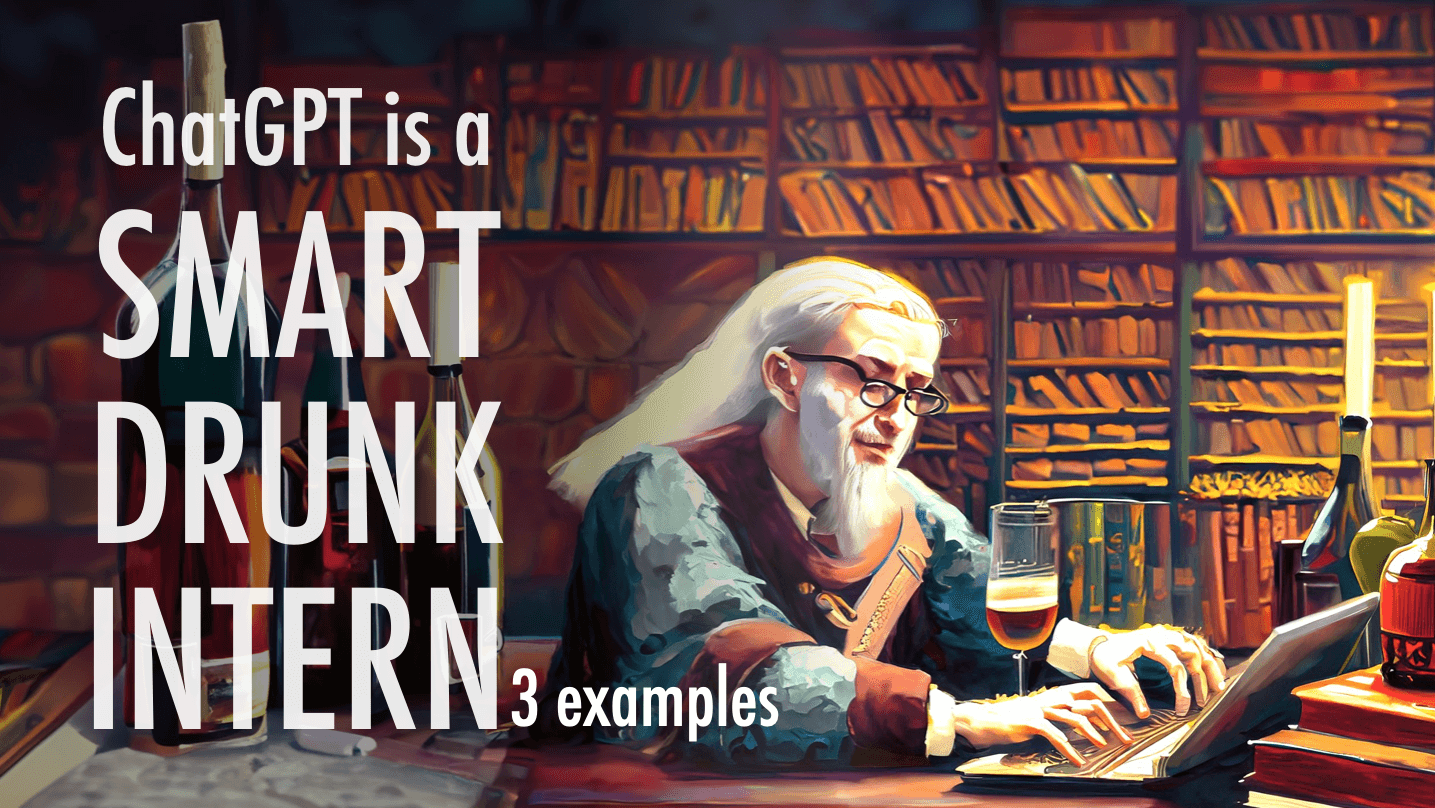
Working with generative AI is like having, at your beck and call, a really smart, but (occasionally) drunk, intern.
These tools are intelligent, in that they can go beyond the information given and have the capacity to learn, adapt, understand / handle abstract concepts and solve problems. Second, genAI is conversational, in that it uses language (a uniquely human capability), and can understand and respond to queries and prompts in a threaded manner, guided by context and the history of prior interactions. This combined with its expertise make it an ideal working partner, a smart intern as it were.
There you have it, a pretty smart intern.
Sadly, this intern sometimes hallucinates, and makes things up. Moreover, it is quite confident of the quality of its output. And as you can imagine, that can be a problem. That is where the “drunk” part comes in. This connects with some other writing I have done around the fact that ChatGPT is a bulls*** artist (building on philosopher Harry Frankfurt’s technical definition of the term). As he said, “Bullshit is unavoidable whenever circumstance require someone to talk without knowing what he is talking about” and that fact is deeply true of these large language models.
Understanding Media
(to better understand GenAI)
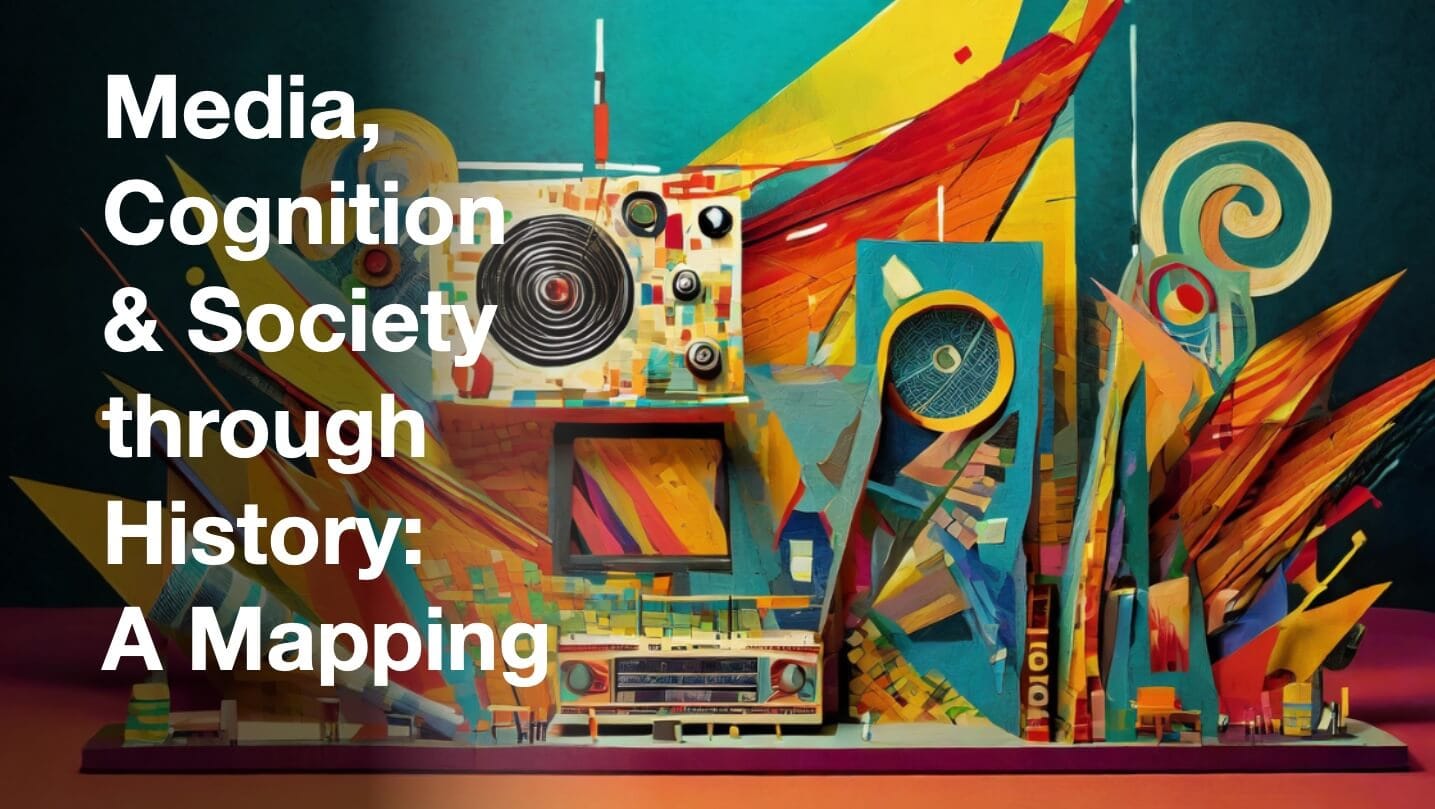
If oral cultures prioritize memory and print cultures emphasize systematic organization, what types of knowledge will AI systems foster?
The idea underlying this quote has been with me for a long time. In fact, the first academic paper I ever published, a book chapter titled Technology, Representation & Cognition with Rand Spiro and Paul Feltovich focused on exactly this question.
Essentially, media are the proverbial water that the fish does not see. I suggest that the development of media and communication technologies throughout history has profoundly shaped the creation, preservation, and dissemination of knowledge and culture, and through that the contexts within which education happens. From the oral traditions that shaped early societies through the impact of print, to the transformative influence of the internet and social media, each medium has left an indelible mark on the way we communicate, learn, and perceive the world. And this will be true of AI as well.
This is not to make a deterministic case for the impact of media. Technologies do not impose but they do open zones or possibility or support one way of thinking more strongly than another.
I have written extensively about this, from a post about LLMs and hallucination, to this series on how media influence our thinking and finally in this post titled Media, Cognition & Society through history
Blog posts related to Generative AI
SITE 2024: A recap
The Society for Information Technology in Teacher Education (SITE) conference has been an integral part of my professional journey for over two decades. My first presentation at SITE was back in 2001 with Matt Koehler and through the years, SITE has played a pivotal...
The (Neil) Postman Always Rings Twice: 5 Questions on AI and Education
Note: This post has also been cross-posted on the Civics of Technology blog. Marie Heath (with whom I recently co-wrote a blog post about GenAI in Teacher Education: A techno-skeptical perspective) and I were invited to write a chapter for an edited volume titled...
Generative AI in Education: Keynote at UofM-Flint
A couple of weeks ago I was invited to give a keynote at the Frances Willson Thompson Critical Issues Conference on Generative AI in Education. It was great to go back to Michigan even if for a super short trip. One of the pleasures of the visit was catching up with...
Hype & Luck: Gratuitous Self-Promotion (2024 Edition)
It is natural, if you have been working in a field for a while, and have been somewhat successful, that some accolades will come your way, just by dint of being around long enough. As Bing Chat wrote, when asked to create a funny, self-deprecating profile of me in the...
Generative AI, Teacher Knowledge and Educational Research: Bridging Short- and Long-Term Perspectives.
I am pleased to share our latest article in our ongoing column series for TechTrends on the topics of technology creativity and education. Over the past few months we have focused on generative AI, through conversations with thought leaders such as Chris Dede...
Education & the Rise of AI Influencers
I have been thinking hard about the nature of generative AI, what sets it apart from other technologies that have come in the past. It seems to me there are two key factors. The first is its ability to engage in dialogue, in natural language and the second are its...
AI is WEIRD: Part II
Note: The image above is an original design - showing "AI" embedded in the word "WEIRD" Generative AI is weird... as I had written in my previous blog post, identifying some key characteristics I had described in a recent Keynote presentation. In the process of...
Keynote Presentation: AI in Education Summit
Note: The image above is the result of a two-stage creative process—done in collaboration with AI. Dall-E was tasked, over multiple iterations, to craft a woodcut-style image, to abstractly capture the idea of AI and education, with dark and light motifs, aiming to...
OECD Global Forum on the Future of Education: Bucharest, Romania
I have been in Bucharest for the past few days participating in the OECD Global Forum on the Future of Education. It has been great fun, meeting lots of new people, developing frameworks around AI and education and more. A few resources and photographs from the...
Design\Ethics\AI
Technologies like remote proctoring software and advanced language models are no longer futuristic concepts. They're here, and they're reshaping how we learn and how we teach. But with these advancements come critical ethical considerations. The deployment of these...
Can we please slow it all down? School leaders take on ChatGPT (new article)
We have, over the past months, explored a range of issues related to generative AI, education, and creativity in our column series, for TechTrends, with the goal of fostering dialogue among stakeholders—students, parents, educators, and policymakers—to ensure these...
A-EYE: When AI can see
AI can now see! And talk to you about what it sees! ChatGPT released its latest upgrade - the ability to not just create images but also to interpret them. I had been waiting for a while now to get access to these new vision features - and just this morning it popped...
The TPACK game: ChatGPT version
Back in the day, Matt Koehler and I had come up with a game to help teachers creatively explore the TPACK framework. There are some traces of this on this website (see here and here) but many of these links are dead. One that still exists is this YouTube video by Lisa...
Designing learning in a transformed world: Keynote
I was recently invited to present virtually at The Heart of Innovation Summer Summit, organized by the Heartland Area Education Agency in Iowa. The video of my talk can be seen below. Maybe my first serious keynote talk about generative AI and education. Enjoy...
Teacher Knowledge in the age of ChatGPT and Generative AI
Update March 2024: This paper received the JDLTE Outstanding Research Paper Award recognizing "the single article from the prior volume year with the highest possibility to advance the field of teacher education, based on the criteria of potential impact and...

